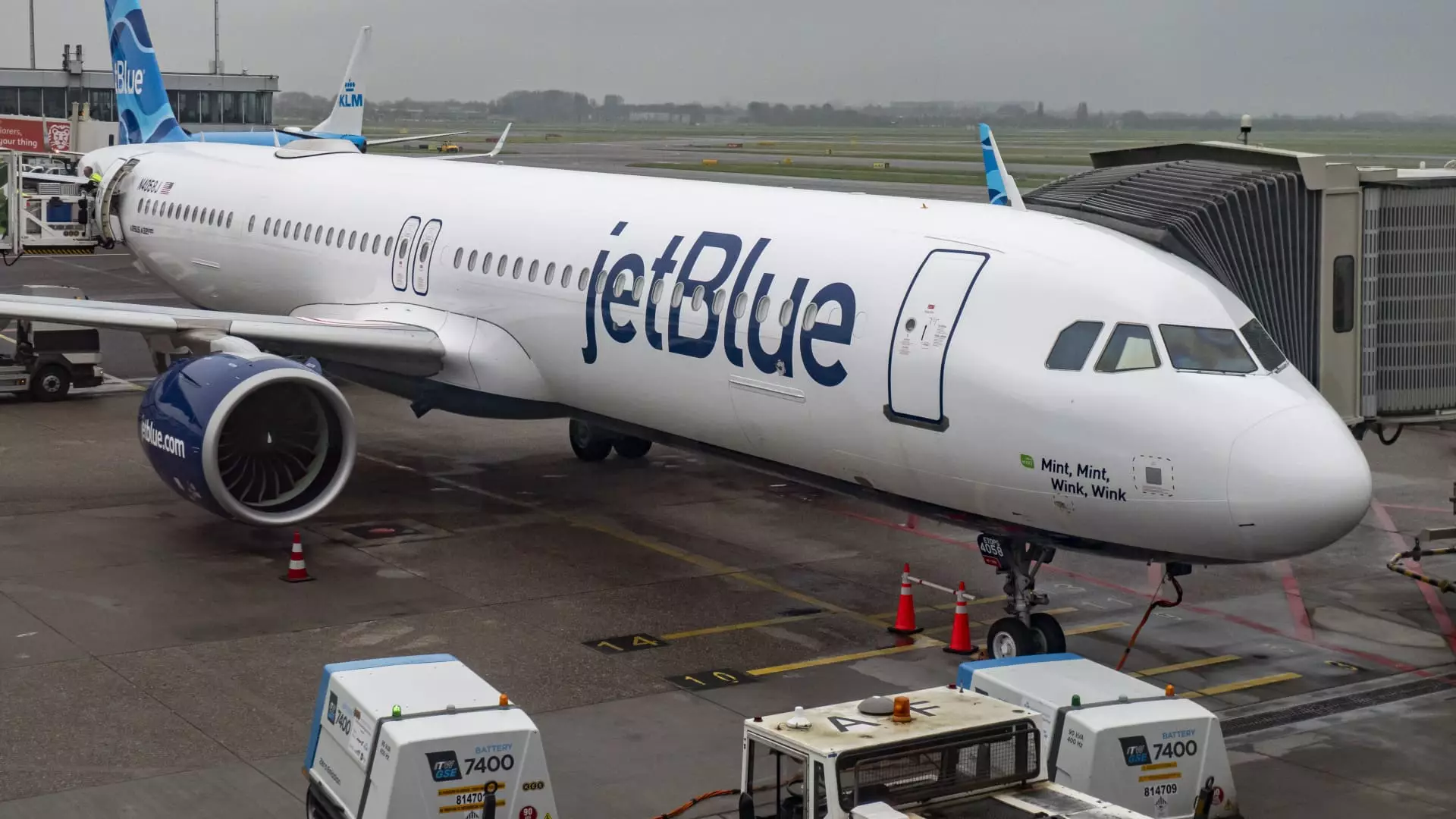In an effort to navigate the shifting sands of travel demand, JetBlue Airways has initiated significant changes that aim to streamline operations and enhance profitability. The airline’s recent announcement outlines the cancellation of various unprofitable routes while reallocating resources, particularly its desirable business class offerings, to areas of higher demand. This strategic realignment is a calculated move aimed at not just surviving, but thriving amidst intense competition and evolving consumer preferences post-COVID.
Among the primary adjustments, JetBlue will halt flights from Fort Lauderdale to Jacksonville as well as routes from New York’s JFK International Airport to cities like Austin and Milwaukee. The cessation of these flights illustrates a broader trend within the airline industry where companies are becoming increasingly willing to forego routes that do not meet financial targets. Particularly noteworthy is the decision to stop offering Mint business class service on flights to Seattle, highlighting JetBlue’s commitment to focusing its premium services where demand remains robust.
In the memo shared internally, vice president of network planning Dave Jehn acknowledged the underperformance in Miami, primarily due to the stronghold of legacy airlines such as American and Delta in that market. Despite this, JetBlue will continue its service from Boston to Miami, signaling that while some routes are being culled, others that show potential will remain operational. This dual approach indicates a level of flexibility that is important for long-term viability in a competitive landscape.
JetBlue’s forward-looking strategy doesn’t stop with domestic flight adjustments. The airline has also indicated that it is reconsidering its European services. Starting summer 2025, JetBlue will cut back on certain JFK to Paris routes and summer-only services to London’s Gatwick Airport. Such a pivot suggests a broader intention to adapt to international travel demands, which may still be oscillating in the wake of the pandemic. By refining its approach to international routes, the airline aims to ensure that it is not simply filling seats but maximizing revenue potential.
The implications for staff are also a concern as JetBlue navigates these operational changes. The airline has communicated with crew members regarding potential redeployment options, ensuring that affected employees can find alternative positions within the organization. JetBlue’s management understands that transparent communication and providing pathways for its workforce are essential elements of any restructuring effort, further bolstering employee morale in uncertain times.
Interestingly, these announcements come on the heels of encouraging financial projections for JetBlue in the coming months, as reported bookings have exceeded expectations. Following this news, JetBlue’s stock rose by more than 8%, reflecting investor confidence in the airline’s strategic direction. As CEO Joanna Geraghty and her executive team prioritize cost reduction and resource optimization, the market’s response indicates a collective appetite for thoughtful restructuring over hasty decision-making.
JetBlue’s recent route adjustments are not merely a reaction to current challenges but a proactive strategy to ensure long-term growth. By balancing route reductions with resource redeployment and careful engagement with its workforce, the airline sets a precedent in the industry for resilience and adaptability. With an eye on both domestic and international markets, JetBlue remains poised to refine its offerings as it charts a course toward recovery and profitability in a changed travel landscape.

Leave a Reply